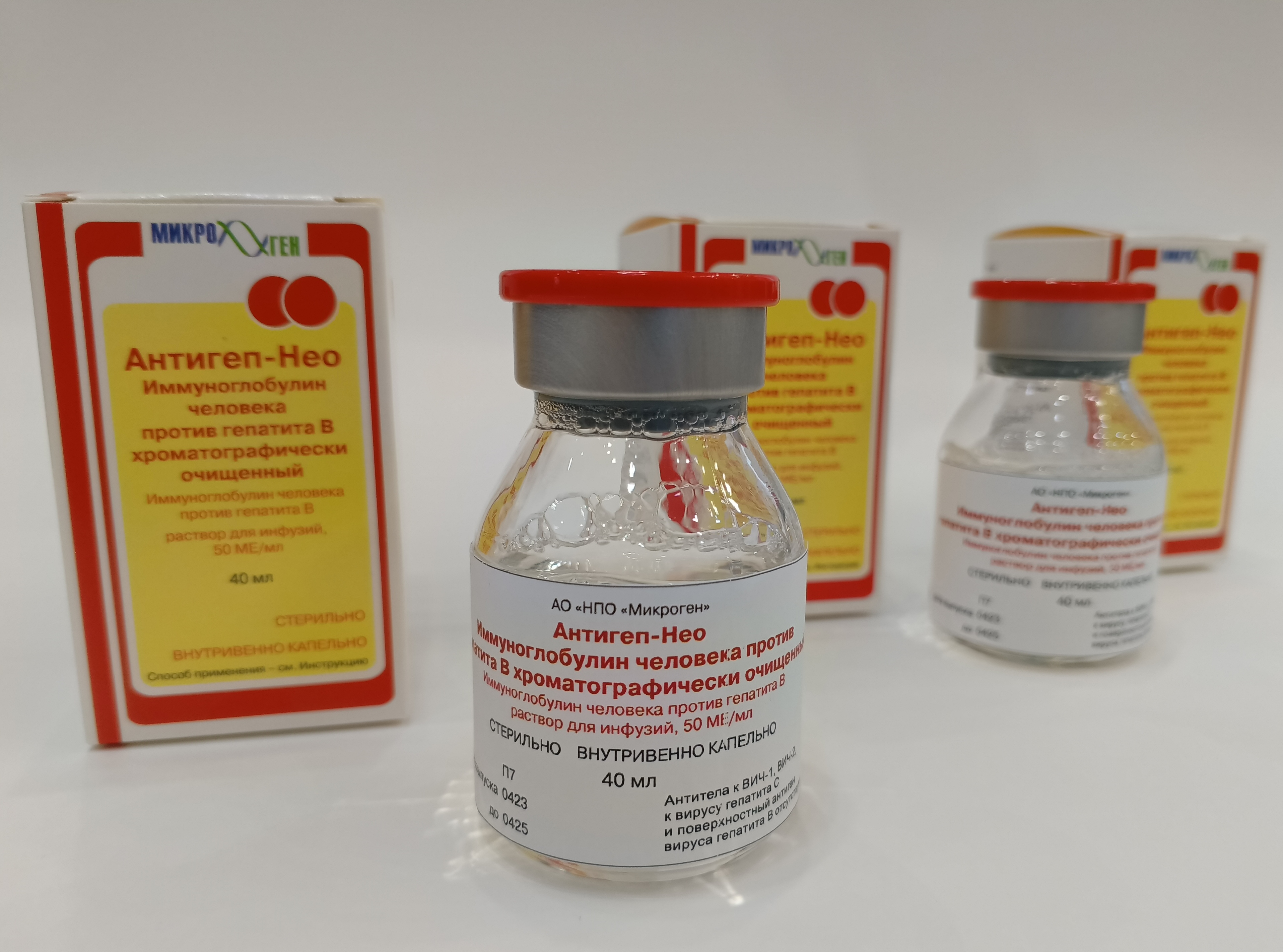
An important event occurred in the pharmaceutical industry in late October this year − the Ministry of Health of the Russian Federation has approved Antigep-Neo specific hepatitis B immunoglobulin. Antigep-Neo has been developed and is produced by NPO Microgen, Rostec’s Nacimbio holding subsidiary.
Antigep-Neo is a next generation medicine whose quality meets the highest world standards. Unlike the previous drugs, the new immunoglobulin production process includes a set of additional purification and viral inactivation stages. Antigep-Neo is given intravenously and shows higher therapeutic efficacy and safety compared with the previous generation drugs.
Hepatitis B presents a serious threat for children
Irrespective of wide benefits of modern medicine, viral hepatitis B is still one of the most serious challenges. It presents a particular hazard to neonates who have no acquired immunity yet and no resources to overcome the virus. Neonatal infection in the vast majority of cases results in a chronic condition – according to WHO, it develops in 95% of infected infants.
To minimize the risks of infection, doctors shall give close attention to the enhancement of hepatitis B prevention in infants and young children. Moreover, modern protection patterns shall include not only vaccination, but also administration of specific hepatitis B immunoglobulins such as Antigep-Neo.
Viral cohabitation
There are several routes of hepatitis B infection. Besides the above-mentioned perinatal infection (i.e. during pregnancy or delivery), transmission occurs through contact with blood, for example, when using someone else’s razor or syringe, and sexually. Among the above, the perinatal route still accounts for up to one third of all cases.
The way in which the virus affects the patient’s liver is a kind of a real action movie or thriller. The pathogen reaches the liver with the blood flow. There is a special type of polypeptide on the surface of the liver that is vulnerable to the large hepatitis B protein. By binding the polypeptide, hepatitis gets into the center of cell while taking off its envelope and releasing its DNA on the move. Figuratively speaking, the virus cracks and captures the cell using the polypeptide as a lock pick. This process extends over the whole liver with time and usually takes from 3 to 6 months.
Despite such ruthless capture, the virus does not kill the liver cells. This is done by our immune system that activates T-lymphocytes or killer T-cells. It is they who inflict critical damage on the organ. The inflammation also acts as a signal for other immune cells making the situation in the liver tissues even more difficult. The patient may be not aware of the disease for a long time, because the processes taking place in the liver may not manifest themselves during the first six months.
Hepatitis B prevention
Hepatitis B may be adequately prevented by vaccination. Hepatitis B immunization in Russia is included in the National Immunization Schedule and involves a three-injection protocol. The first injection is given within 24 hours after birth, then at the age of two and six months.
All neonates born to HBsAg-positive mothers shall be given not only the first vaccine dose, but also the specific hepatitis B immunoglobulin within the first 12 hours. Then the 1–2–12 month schedule shall be followed.
Administration of immunoglobulin allows the specific immunity to be acquired quickly, while it usually takes one to two weeks to produce endogenous antibodies. The active principle of a highly purified immunoglobulin such as Antigep-Neo is represented by hepatitis B surface antigen (HBsAg) antibodies that block the virus receptors preventing the virus from propagating in the body. Antigep-Neo is expected to be used in practical medicine from the end of 2024.
Antigen-Neo production process involves several additional purification stages to ensure high viral safety of the drug and minimize the risk of adverse reactions in patients. Unlike the previous-generation immunoglobulin medicines, Antigen-Neo is administered intravenously to ensure high therapeutic efficacy.

